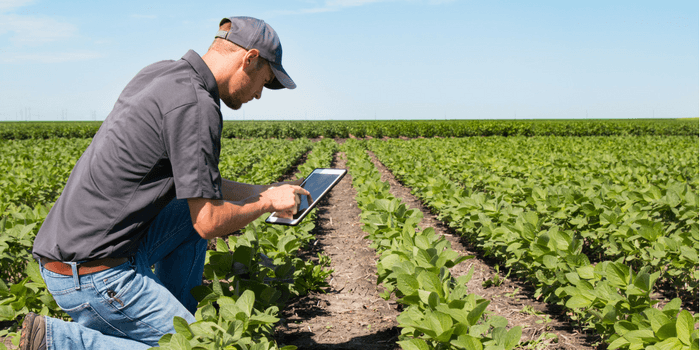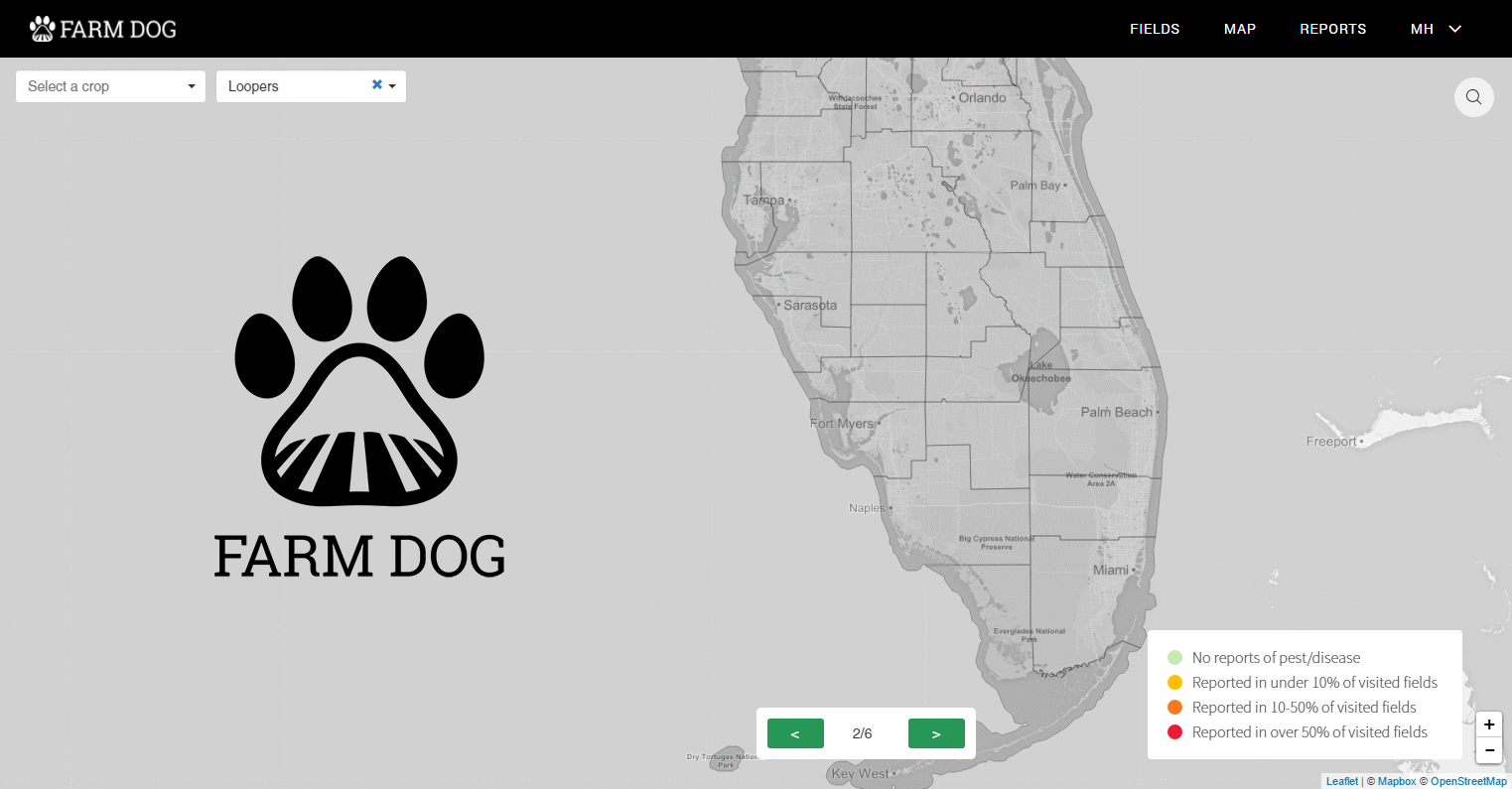For most people, the first response when they see a bug is to reach for the can of bug spray and “eliminate the threat.” Farmers are no different; when they see an infestation of pests in their fields or outbreaks of diseases that threaten to destroy their crops – and with it, their livelihoods – they, too, dispatch a potent mix of pesticides or chemicals specially designed to deal with the problem.
According to Liron Brish, CEO, and co-founder of Farm Dog, “Farmers spend $60 billion a year on pest prevention, but they still lose 20% to 40% of their crops to pests,” Brish said. “Besides that, scouting – the process of observing pest infestations or disease and devising plans to combat them – is very time consuming and labor intensive. Our platform aims to reduce those losses, saving farmers time and money.”
Farm Dog is an Israeli start-up that seeks to help farmers more effectively manage the health of their crops, providing tools to bring the process at the root of that management – scouting – into the 21st century.
“Scouts, whose job it is to go out into the fields and check on insect infestations and plant disease usually write down their observations in a notebook, the equivalent of paper records that doctors not too long ago relied on,” said Brish. “With an easy to use interface that allows scouts and farmers to easily record data on the condition of fields, including where pests are nesting, what parts of a field are blighted with which kinds of outbreaks, and other data, our platform can help them make intelligence-based decisions on how to manage pests.”
Without that intelligence – and always assuming the worst – farmers’ first response is often to spray, hoping that they get the right pesticide mix and hit the right targets. Besides the damage this can do to the environment – not to mention the people who eat pesticide-laden produce – prophylactic insecticide spraying of this type eats into a farmer’s bottom line; many ends up spending 10%, 15%, and more on pesticides, a huge expense, considering that there is no insurance that the strategy will save their crops.
Moreover, wholesale spraying practically guarantees that farmers will have a problem in the future; the hardier insects that are able to withstand an “attack” often go on to sire future generations that build up resistance to pesticides, meaning that farmers have to use larger doses, or more sophisticated products – both likely to cost them, even more money, and further aggravating issues of environmental damage, quality of produce, etc.
A Good Scout Makes All the Difference
The key to dealing with the problem, believes Brish, is information – and Farm Dog’s app provides farmers and scouts with the tools they need to record that information easily. “The app’s interface includes a customizable list of diseases and blights that are common to the crops farmers are growing, and that they could expect to see in their areas.”
“The app lets them take photos, and uses GPS to determine the exact spot a blighted plant has been observed. There’s no writing or typing involved – everything is menu-driven, so it is easy to for farmers or scouts to record the data, which is then uploaded to the cloud. Unlike other recording apps – none of which are as in-depth and menu-driven as ours – we have an iOS and Android version, and farmers who have an account with John Deere can send their data directly there.”
Armed with precise data on the location of a problem, photos of the affected plants, and information culled from scouts who contribute information to a central database, Farm Dog’s data analysis such as treatment efficacy and regional outbreak mapping helps farmers make more effective decisions on how to deal with the problem – what pesticides or treatments to apply, where to apply them, and how much they need to spend on which treatments. “The value proposition for farmers is significant because they can end up saving not only money they would otherwise spend on prophylactic spraying, but they can also intervene in a more precise manner to prevent the spread of infestations or blight by concentrating efforts on the nexus of the problem.” Moreover, even if their fields are pest and blight free, farmers still save a significant chunk of change – by making the scouting effort more efficient, as scouts can get their work done more quickly. “The scouting process is extremely labor intensive, and any tools that can speed it up will save farmers money,” said Brish. “Farm Dog saves farmers and scouts at least 45 minutes a day.”
Speaking to Farmers in a Language They Understand
When speaking to farmers, Brish – who lived in Texas for years and is a partner in farm-to-fork restaurants in Austin, has what he calls a “unique rapport” with folks from an agricultural background – tries to emphasize that time savings, as it is, a metric farmer can relate to.
“Family farmers – who in the US still constitute the majority of farmers – are very concerned with the bottom line, because so many factors are out of their control. The more they can save at the expense end, the more likely they are to adopt and adapt to technologies they have not used before.” For most farmers, the time savings themselves are enough to prompt them to give Farm Dog a try – and the savings in outlay on pesticides and treatments, as well as the increase in crop yield, are a happy result they see later.
Brish, along with partner Michael Hermon, has raised a seed round (supplied by Lool Ventures) and recently got a 100,000 euro grant as part of a Horizon 2020 program.
The app has won numerous awards. As well, the company participates on the Farm Bureau’s Data Privacy Advisory Board, and Farm Dog’s advisory board includes some heavy hitters in the Agtech world, including Dr. Charles Mellinger of Glades Crop Care, Former Deputy Chief of Staff at the USDA Carole Jett, and Former Chief Marketing Officer of Netafim Aliza Tamir. Right now, Farm Dog, which only publicly released its platform at the end of January, has already been used to protect crops grown for Walmart, Costco, McDonald’s, and more.
The business opportunity for Farm Dog is huge; people must eat, and farmers are under pressure to grow more food for a growing population. Already worth $60 billion worldwide, the insect and blight prevention market is set to grow significantly in the coming years, reaching $80 billion or even more within a decade. “Obviously, we are in business to make money, but I see this as more than a for-profit venture,” said Brish. “Global food security is a major issue for humanity, and it is an area that needs much help. The folks who are feeding us are spending too much money on efforts that are not helping them, and that is not good for the food economy. The more resources farmers can save, the better for everyone. If some of the folks who are working on digital marketing put their efforts into ag tech, the world would be a lot safer and more stable than it is now.”

